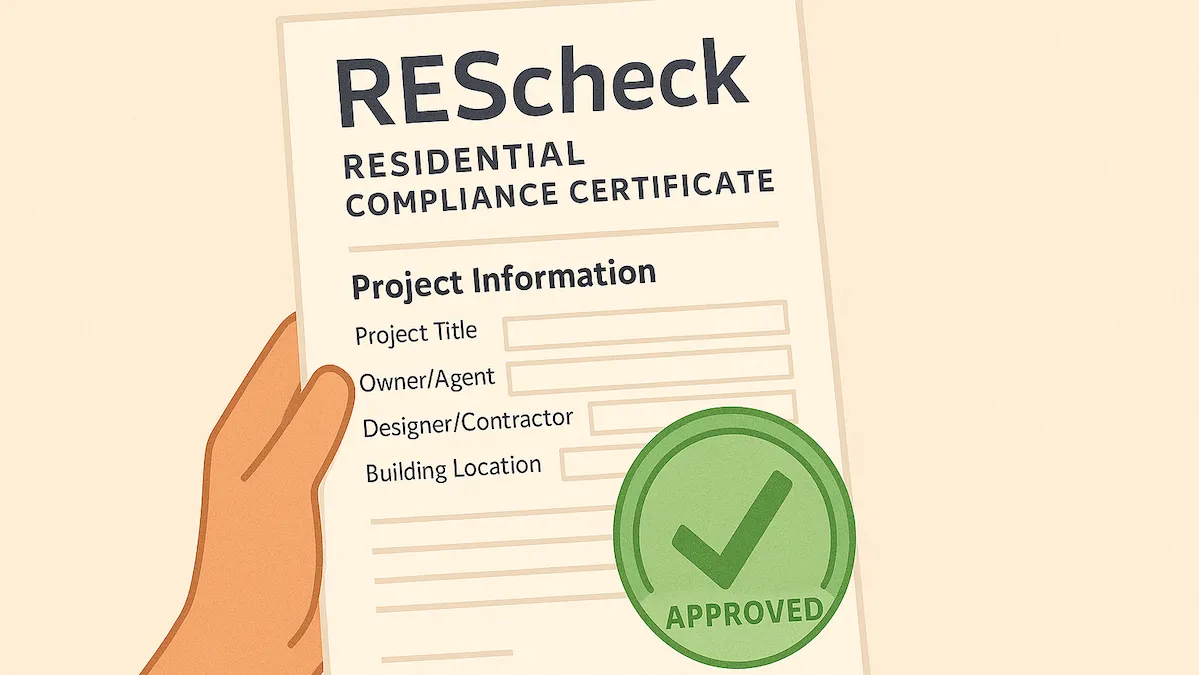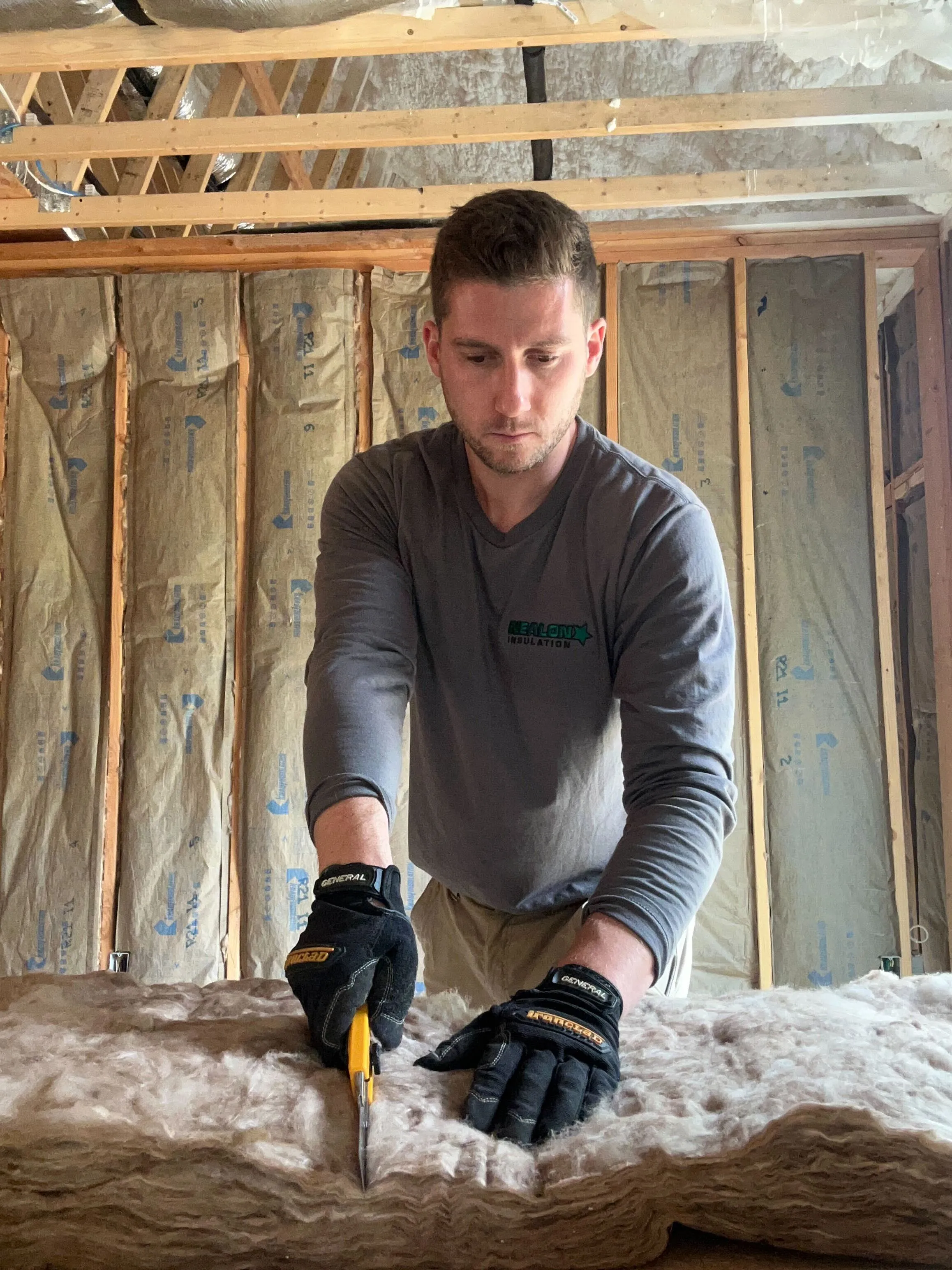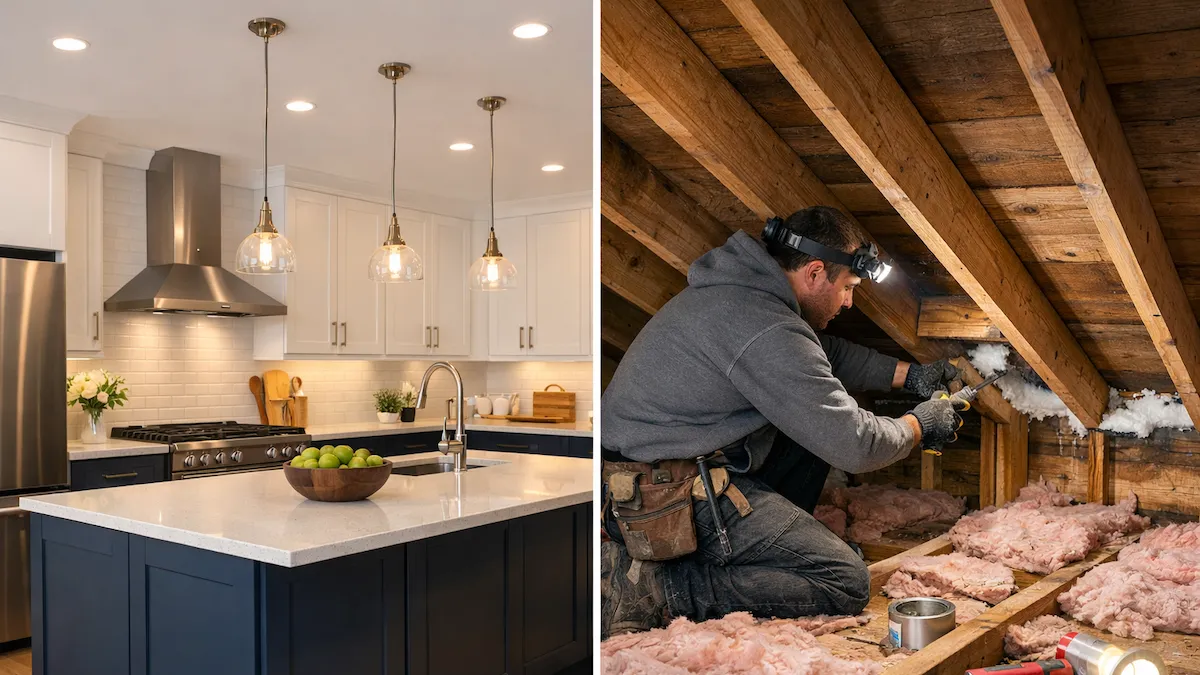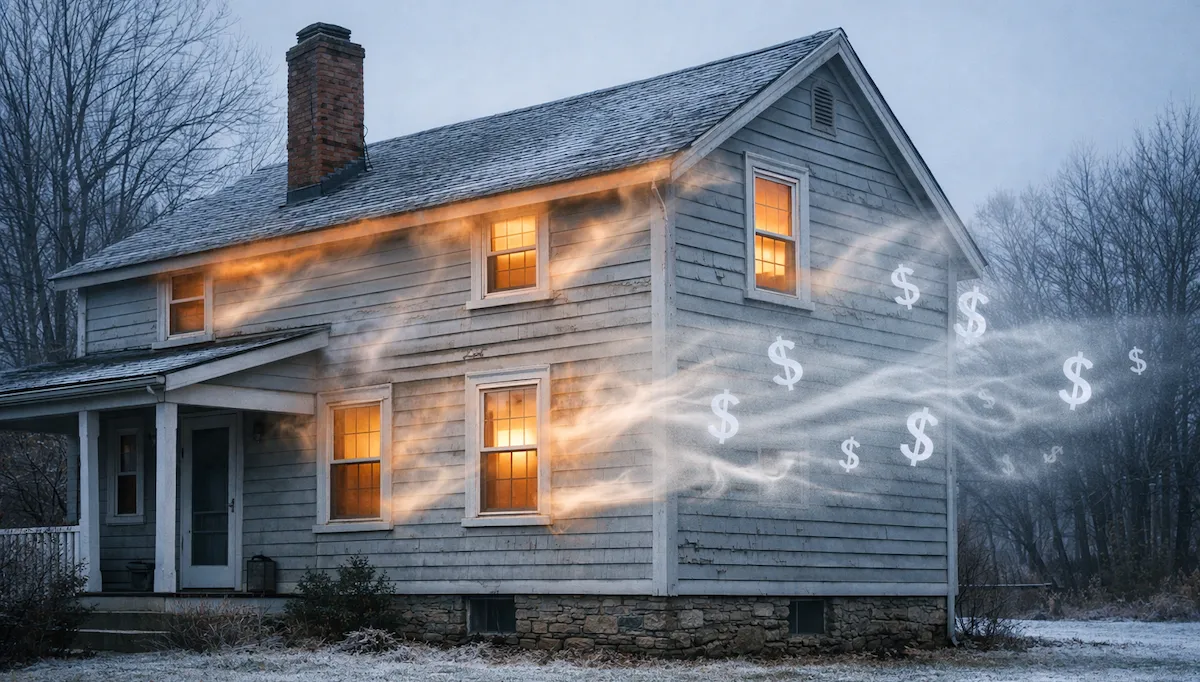What is a REScheck? And why it matters in Connecticut

If you're building a new home, adding an extension, or undertaking a major renovation in Connecticut, you've likely encountered the term REScheck. It might sound like bureaucratic jargon, but understanding REScheck is crucial for ensuring your project complies with energy codes and avoids costly setbacks.
What Is a REScheck?
REScheck stands for Residential Energy Services Check. It's a software tool developed by the U.S. Department of Energy to help builders, designers, and homeowners demonstrate that their construction projects meet the energy efficiency requirements of the International Energy Conservation Code (IECC).
In simpler terms? A REScheck report verifies that your home’s design includes adequate insulation, efficient windows and doors, and proper air sealing to meet or exceed energy codes. Think of it like your home’s energy performance report card — and you want to pass.
When Is a REScheck Required in Connecticut?
In Connecticut, REScheck is commonly required for:
- New residential constructions
- Additions that increase the conditioned (heated or cooled) space
- Major renovations affecting the building envelope (walls, roof, windows, doors)
Local building departments often mandate a REScheck report as part of the permit application process to ensure your project meets the state’s energy code. Best bet? Check with your local building authority before breaking out the blueprints.
Why Is a REScheck Important?
1. Ensures Code Compliance
A REScheck report gives you documented proof that your project meets Connecticut’s energy code. It’s often required to get permits and pass inspections — and skipping it can lead to big delays.
2. Optimizes Energy Efficiency
REScheck evaluates your home’s design and identifies areas to improve efficiency. That means lower energy bills, better comfort, and fewer complaints about drafty rooms down the line.
3. Facilitates Trade-Offs
Here’s where it gets good — REScheck lets you play with the numbers. Say your walls are above code with extra insulation? Then you may be allowed to use slightly less insulation in the attic. This kind of flexibility can save you money on materials and labor while still meeting overall efficiency goals.
4. Supports Incentive Programs
Complying with energy codes through REScheck may make your project eligible for rebates and incentives. In Connecticut, EnergizeCT offers programs that can help offset the cost of insulation, high-efficiency HVAC systems, and more.
How REScheck's Can Actually Help You (Not Just Limit You)
Most folks hear “code compliance” and think: red tape. But REScheck isn’t just about putting up walls (literally or figuratively). It’s actually a smart way to unlock more cost-effective design options while still meeting or exceeding energy efficiency standards.
REScheck looks at the whole building system — not just your insulation. It considers:
- Window performance (U-value and SHGC)
- Heating and cooling systems
- Air leakage
- Roof/ceiling insulation
- Wall and floor insulation
- Foundation type
So instead of requiring every single part of the home to hit a strict R-value target, it lets you balance things out. Maybe you go all-in on a high-efficiency heat pump or better windows — then the software might allow lower insulation values in other areas, without violating code.
This is huge for Connecticut builders and homeowners, where construction costs are no joke. REScheck offers a real path to code compliance with a dose of flexibility, making projects more affordable without cutting corners.
Is One Type of Insulation Better for REScheck?
Great question—and the answer is: it depends on your strategy. REScheck doesn’t play favorites with insulation materials. It just looks at overall performance, meaning how well your entire building envelope holds heat in winter and keeps it out in summer.
That said, here’s how different types of insulation can impact your REScheck score:
- Spray Foam: Offers top-notch R-values and air sealing in one go, which can significantly boost your REScheck performance—especially in tight spots like rim joists, cathedral ceilings, and crawl spaces. If you’re trying to make up for less-efficient windows or minimal wall space, spray foam is a power move.
- Cellulose: High-density and great for filling gaps, especially in retrofits or irregular framing. It performs very well in attics and walls, and when combined with proper air sealing, it holds its own in REScheck reports.
- Fiberglass: More affordable and easier to install in large open cavities. It can pass REScheck just fine when paired with air sealing and efficient windows—but it needs to be installed properly (no gaps, compression, or air leaks).
Bottom line? No single insulation type is “better” for REScheck. It’s about the right mix for your design. And because REScheck allows trade-offs, you’ve got options to get creative without sacrificing performance—or blowing your budget.
Where to Get a REScheck in Connecticut
If you’re a Connecticut homeowner and your town requires a REScheck for your permit, you’ve got a few solid options. Some are DIY. Most are professional. Here’s how it typically plays out.
Use the Official REScheck Software (DIY Option)
The U.S. Department of Energy provides the official REScheck software for free at: https://www.energycodes.gov/rescheck
You can download it and generate the report yourself.
But here’s the reality: you’ll need accurate data for insulation R-values, window U-values, HVAC efficiency ratings, square footage, foundation type, and more. If you’re comfortable reading construction plans and manufacturer spec sheets, it’s manageable. If not, it can get technical fast — and mistakes can delay your permit approval.
Hire a Contractor or Design Professional (Most Common)
In Connecticut, most homeowners don’t create their own REScheck. Instead, they get it through:
- Their builder or general contractor
- An architect or draftsman
- An insulation contractor familiar with energy code compliance
- A third-party energy consultant or HERS rater
This is usually the smoothest route. Professionals understand the current Connecticut State Building Code and know how local building departments want the report formatted and submitted.
Check With Your Local Building Department First
Before doing anything, call your town’s building department.
Ask:
- Is a REScheck required for my specific project?
- Does the town require anything beyond the standard report?
- Are there additional forms tied to energy compliance?
Requirements can vary slightly by municipality, and that quick call can prevent unnecessary back-and-forth.
Timing Matters
The best time to run a REScheck is during the design phase — not after framing starts. Running it early gives you flexibility to adjust insulation levels, window specs, or HVAC equipment without costly changes mid-project.
Bottom line: You can generate a REScheck yourself, but in Connecticut, most homeowners rely on a contractor or energy professional to ensure it’s accurate, compliant, and approved without headaches.
Common RESCheck FAQ's
Can I create a REScheck report myself, or do I need a professional?
Yes, you can create a REScheck report yourself using free software from the Department of Energy, but it requires technical knowledge about insulation, windows, and HVAC systems. Most homeowners hire a contractor or insulation company to ensure accuracy and meet local code requirements for permit approval.
What happens if my project fails REScheck?
If your project fails REScheck, the report will highlight which areas don't meet code—such as insulation or windows. You can fix the issue by upgrading materials or using trade-offs. It’s a correctable issue, not a dealbreaker, and most failures are resolved with minor design or material changes.
Is REScheck only required for new construction, or does it apply to renovations too?
REScheck is not just for new construction—it often applies to major renovations or additions that affect your home’s insulation, windows, or structure. If you’re altering the building envelope, such as finishing an attic or expanding a room, local codes may require a REScheck to verify energy compliance.
Does REScheck guarantee my home will be energy efficient?
REScheck does not guarantee energy efficiency—it simply verifies your home meets minimum code requirements. Passing REScheck means your project is compliant, not optimized. For better comfort and lower energy bills, go beyond code with added insulation, air sealing, and upgraded materials.
Will my REScheck report affect home resale value or appraisal?
A REScheck report alone won’t directly affect your home’s appraisal, but meeting or exceeding energy codes can improve resale value. Buyers appreciate lower utility costs and better comfort. Documented insulation upgrades and energy improvements paired with REScheck compliance can enhance your home’s market appeal.
Final Thoughts
Navigating Connecticut’s energy codes doesn’t have to be a headache. REScheck is your friend, not your foe — especially when you know how to use it right.
Whether you're building from scratch or tackling a major renovation, incorporating REScheck early can save you time, money, and stress — and get your project approved faster.
Related Articles
Let's Work Together
Ready to transform your home into an energy-efficient haven? Schedule your free energy assessment today and experience the Nealon difference for yourself.



